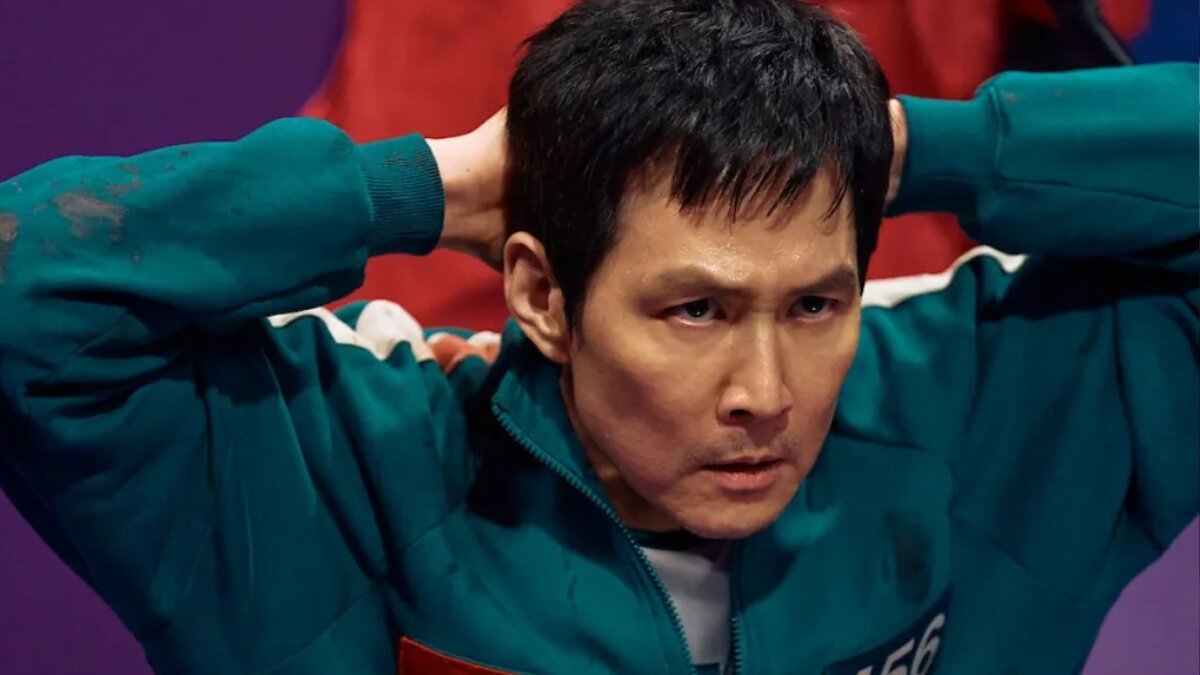When we first met Seong Gi-hun in Squid Game Season 1, he was a broken man—debt-ridden, jobless, and desperate. His descent into the brutal arena of the Squid Game was a last resort, not a conscious choice. But what made Gi-hun unique wasn’t his survival instinct—it was his heart. While other players schemed and betrayed, he held onto empathy, compassion, and hope. That’s what made his eventual victory so satisfying: he didn’t just survive the game—he did so without losing his humanity.
But Squid Game is not a show that allows its characters to remain static. Gi-hun’s journey across three seasons is not a simple tale of rags to riches. It’s a slow-burning evolution from survivor to reluctant hero to active rebel—one marked by guilt, grief, trauma, and an increasingly blurry moral compass. The bright red hair he dyes in Season 2 is symbolic: Gi-hun is no longer the same man. He’s been changed by the system, and now, he’s determined to change it in return.
Season 3 solidifies Gi-hun’s transition into a savior figure. But not in the traditional, noble sense. His mission to dismantle the Squid Game organization leads him down a darker, more complicated path. He becomes more calculated, more manipulative—even willing to sacrifice others if it means taking the system down. It’s this complexity that makes his arc so powerful: he’s no longer just the “good guy”—he’s someone trying to do good in a world that punishes goodness.
So, how did Gi-hun transform from a desperate man to a symbol of resistance? And can someone truly save others without destroying themselves in the process? Let’s trace the key phases of Gi-hun’s evolution across the series.
Phase 1: The Desperate Underdog
In Season 1, Gi-hun is introduced as a man at rock bottom. He’s unemployed, divorced, living with his mother, and failing as a father. But even in the game, where brutality reigns, Gi-hun is defined by his empathy—sharing food, helping weaker players, and choosing morality over survival instincts.
His alliance with players like Ali and Sae-byeok wasn’t strategic; it was emotional. His heartbreak after their deaths marks the beginning of his transformation—realizing that even good intentions can’t protect you in a system built to exploit.
Phase 2: The Broken Winner
Gi-hun’s victory at the end of Season 1 doesn’t feel like a triumph. He leaves the arena alive but spiritually shattered. The prize money doesn’t bring happiness—it brings guilt. He doesn’t spend the money. He disappears. He’s emotionally detached, haunted by the memory of those who died, especially because he “won.”
When he finally learns the truth about the game’s origins from Player 001 (Oh Il-nam), the betrayal cuts deep. The game wasn’t just about survival—it was a twisted form of entertainment for the rich. This revelation shatters any illusion Gi-hun had about fairness or meaning. He realizes the game—and the world—is rigged.
His decision not to board the plane to see his daughter, choosing instead to confront the game again, marks a critical turning point: the survivor becomes the rebel.
Phase 3: The Reluctant Hero
Season 2 and early Season 3 position Gi-hun as a reluctant activist. He doesn’t want to play again, but he sees no other way to bring down the organization. His transformation into a savior figure begins here—not because he wants power, but because he can’t live with silence.
Still, his methods shift. Gi-hun starts to think tactically. He builds alliances not just out of kindness, but out of necessity. He infiltrates, investigates, and begins playing the system from within. His actions become colder, more calculating—a reflection of the game’s influence on his psyche.
Phase 4: Savior or Saboteur?
By the climax of Season 3, Gi-hun is leading an underground resistance from within the game itself. He manipulates events, sacrifices pawns, and challenges the Front Man directly. His ultimate goal—to expose and destroy the Squid Game—is noble. But the means he uses are questionable.
He allows players to die for the mission. He lies. He kills. In some moments, he appears indistinguishable from the very men he once despised. Yet, unlike the VIPs or the Front Man, Gi-hun never loses sight of the “why.” His actions are still fueled by guilt, grief, and a desperate desire to stop the cycle.
What Makes Gi-hun’s Evolution Unique?
Gi-hun’s arc is not a redemption story—it’s a reckoning. He doesn’t seek forgiveness for surviving; he seeks justice for those who didn’t. And in doing so, he becomes something more than just a protagonist. He becomes a mirror for the audience—a reflection of what happens when systems fail, and people are forced to adapt or die.
His evolution also challenges the hero narrative in modern media. Heroes are often clean, morally upright, and untouched by darkness. Gi-hun, however, is messy. He is kind and ruthless, broken and brave. His pain fuels his strength, and his scars make him relatable.
Conclusion: Savior, Survivor, or Something Else?
Gi-hun’s journey through Squid Game is one of the most compelling arcs in modern television. He starts as a desperate man searching for hope and ends as a flawed savior trying to offer hope to others. But that transformation comes at a cost—one that blurs the line between justice and vengeance.
Is he still the hero of the story? Yes—but not because he’s perfect. He’s the hero because he refuses to ignore suffering, even when it means sacrificing his own peace. In the world of Squid Game, where every choice is a gamble, Gi-hun chooses to fight—not just to survive, but to change the rules entirely.
And maybe, just maybe, that’s what makes him a true savior.


